
In Conversation with María Luisa Mendiola of MIGA Swimwear
October 16, 2020
Describe your business in a few words?
We believe we can flip swimwear on its head, and make it work for EVERYONE. Our swimsuits are designed with the input of members of the disfigurement, disability and chronic illnesses communities. We aim to raise awareness and understanding about this group through design and storytelling since we are committed to making this world a more accepting and tolerant place.
What made you take the leap to start your own business?
MIGA Swimwear starts from my personal experience with disfigurement: I have a genetic condition that caused me to have brachymetatarsia, which means that I have shortened 4th toes on both of my feet. A couple of years back, a friend asked me, “what’s wrong with your toes?” I got very uncomfortable and quickly changed the subject. I remember thinking: How is it possible that I am 25 years old and I still react like this when someone asks me about my feet? It dawned on me that this question was always going to come up, no matter how old I got. So I decided to focus my masters in design at Central Saint Martins, UK, on figuring out ways to lower stigma in the disfigurement, disability and chronic illnesses community. To my surprise, I found that swimwear design coupled with storytelling could help women own their body story and thus, feel more comfortable with their bodies.
What was your background prior to starting your own business?
I used to work in financial data. It wasn’t until 2015, that I decided to quit my job to pursue a master’s degree in design thinking at Central Saint Martins, UK. My thesis then became MIGA Swimwear.
Did you always know you wanted to be an entrepreneur?
I come from a long line of entrepreneurs, the first being my great-grandmother, whom I am named after. So in a way, I always wanted to be an entrepreneur because that’s all I knew and because I learned by example to be the owner of my time.

Take us back to when you first launched your business, what was your marketing strategy to get the word out and did it go as planned?
In 2018, we raised upwards of $10,000 to produce our first collection inspired by burn survivors through Kickstarter. Before we launched, I made sure to have a strong marketing plan aligned, consisting of a strong mailing list, PR and social media. I pitched early to many media sources and we received coverage in Teen Vogue and Glamour, among others. I also made sure to remind my friends and family, through social media and text, that we were gearing towards a Kickstarter.
Through our Kickstarter, we quickly realized that our messaging wasn’t getting across correctly. A lot of people thought that our pieces were only for people who have health conditions and that is not the case. Our collections are designed to be worn by all in order to create a shared sense of identity. I believe non-disfigured and able-bodied people can reframe how they look at their own bodies and ultimately, learn how to accept and love themselves through the lessons of the disfigurement, disability and chronic illness community. That is why our swimsuits come with a bag that has the printed stories of our collaborators. Not only does it empower our collaborators to share their story, which has been proven to lower stigma, but it encourages non-disfigured and able-bodied people to love and accept their own bodies no matter what.
We always learn the most from our mistakes, share a time with us that you made a mistake or had a challenging time in business and what you learned from it?
My background is not in production, so there was a steep learning curve around understanding how factories work. I thought that if I took a manufacturing tour in the Garment District I would be spared, but what ended up happening was that for the first 1-2 years of operation,I was completely frustrated and worn out by factories that could smell my inexperience and took advantage of it. The factories that we worked with during those first years never answered my calls or emails, didn’t respect deadlines and promised high quality but were never able to deliver. It was not until I had a serious look in the mirror and realized that I needed to get help and get help fast, if our business was going to survive. At that point everything started to change. After a lot of cold calling, opening up to strangers about my experience and asking for A LOT of help, I have finally found the dream team. I found a production manager that has worked with luxury swimwear brands, a pattern maker that does most, if not all, the patterns for the NYC swimwear brands and most importantly, a LA based factory that cares not only about our brand and our success, but about our team.
What is the accomplishment you are the most proud of to date?
I am most proud of disrupting the beauty standard. Because of our product and our marketing campaigns, people can now think of swimwear bodies differently. Everybody is a swimwear body. If I could do it all over again, I would do it exactly the same. Every failure and mistake I have made has brought me here, and here is a pretty awesome place to be.
When hiring for your team, what is your go-to interview question? Please share any hiring tips you can share from your experience?
“What is your management/communication style?” I like asking this question because it is usually a good telltale sign of how they manage their time, whether or not they prioritize communication and whether they prefer open and direct communication. I also recommend always asking for two referrals and actually calling/emailing them to get a good idea of the work ethic of the candidate.
How has your business or industry been impacted by the COVID-19 pandemic?
Due to COVID19 we have decided to adjust our prices to reflect the changing times and the needs of our community by lowering our prices 30%, in some cases 40%. With so much unemployment, I think people are going to be more mindful of the brands that they support. I wouldn’t be surprised if there was a dip in sales in the upcoming months but I am optimistic that being outdoors will continue to be a long lasting trend and that we will be able to enjoy the beach or pool, responsibly. Unfortunately, many brands that perhaps were not doing as well before COVID19 might not be around post-COVID19. I think that is unfortunate because it is with increased competition that we are encouraged to innovate.

What's next for your business? What can we expect to see over the next few years?
In the future, I see MIGA Swimwear moving to other categories such as women’s ready-to-wear and men’s swimwear. I also see the company having its own charitable arm that focuses on creating curriculums for school’s on how to teach tolerance towards the disfigurement, chronic illness and disabilities communities, workshops for how to cope with a change in appearance or with discrimination at work. I am truly inspired by the work of Changing Faces UK, a charitable organization that advocates for the disfigurement community, and would love to replicate their work in the US so we can offer more psychosocial adaptations to these communities.
What is the biggest lesson you have learned in 2020?
The flexibility you have as a small business is truly a privilege. COVID19 hit right as we were supposed to start promoting our newest collection but it didn’t seem right to do so, especially because COVID19 uniquely affects a big part of our community, who have preexisting conditions. Instead we decided to show up for our community in ways that at the beginning weren’t so clear, but we were energized to test. That is how our weekly Instagram Lives came to be. I figured people were curious, as I was, of how different people were reacting to the lockdown and decided to start interviewing people. We believe that showcasing the stories of the members of our community and their coping mechanisms is uniquely useful to the general population during the pandemic, as this group has a lot of experience with prolonged times of isolation and health uncertainty. We have interviewed disability stylist Stephanie Thomas, style influencer Alyssa Coscarelli and disability advocate Emily Ladau and Kendall Ciesemier, as well as organized unique content for the Alopecia Areata and Spinal Cord Injury awareness month.
What do you know now that you wish you knew when you were first starting your business?
I wish I would have asked for help earlier than I did, especially in aspects of the business I did not feel confident in. That would have saved us a lot of time, money and pain.
How have you managed to stay grounded this year?
Every time I felt like I wasn’t doing enough or our business wasn’t reaching its milestones, I reminded myself that just being here on this earth, at this time, is enough. I have taken the downtime that the pandemic has afforded me as a much needed touch base with who I am and where I want to go. I am also aware of the privilege I have to be able to take this time off and not have to be working in the frontlines. When I ground myself in gratitude, coping with our current situation becomes easier. When I seek comfort in the future, the present doesn't seem so daunting.
Do you believe in work/life balance? What are some of your best tips?
Absolutely. Many entrepreneurs will tell you that we are always on, working. That is easy to do, the hard part is to unplug and not feel guilty about it. So the way I balance work/life is by following my husband’s schedule. When he goes to work from 9am to 8pm, I am working during that time and I try my best to disconnect and take the weekend like I would if I wasn’t my own boss. Upholding his schedule has helped me be productive when I need to be and relax and prioritize our relationship when I need to. Of course life isn’t perfect, so as your own boss you also have the flexibility to rearrange your calendar to fit your needs. Don't forget that.
What's something our audience would be surprised to learn about you?
I was once a Zumba instructor ;)
What are your top 3 tips to stay productive each day?
Respect down time, plan your day ahead and stay flexible.
What does being an Entreprenista mean to you?
Someone that doesn’t take no for an answer. Someone that is energized by obstacles, that is not afraid to be bold and that approaches everything with equal parts tenacity and kindness.

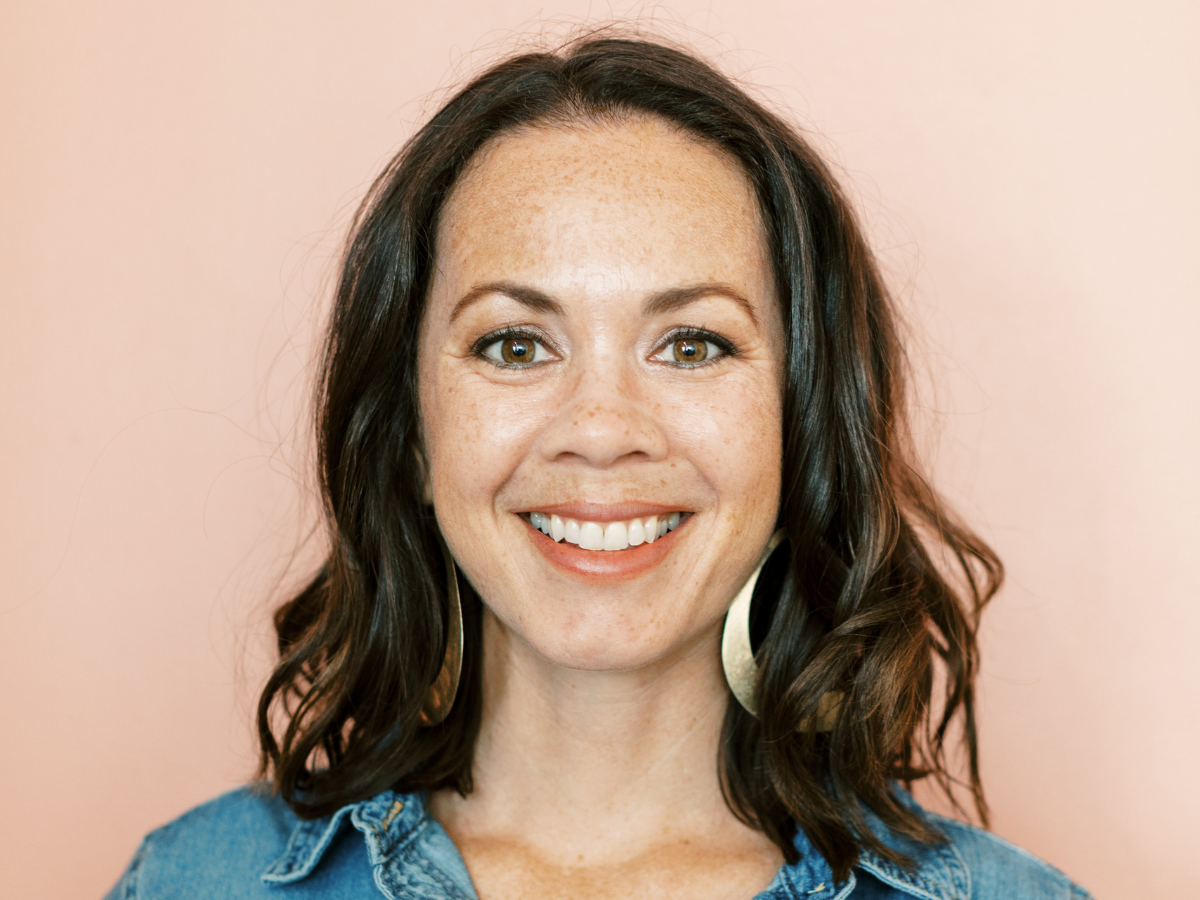
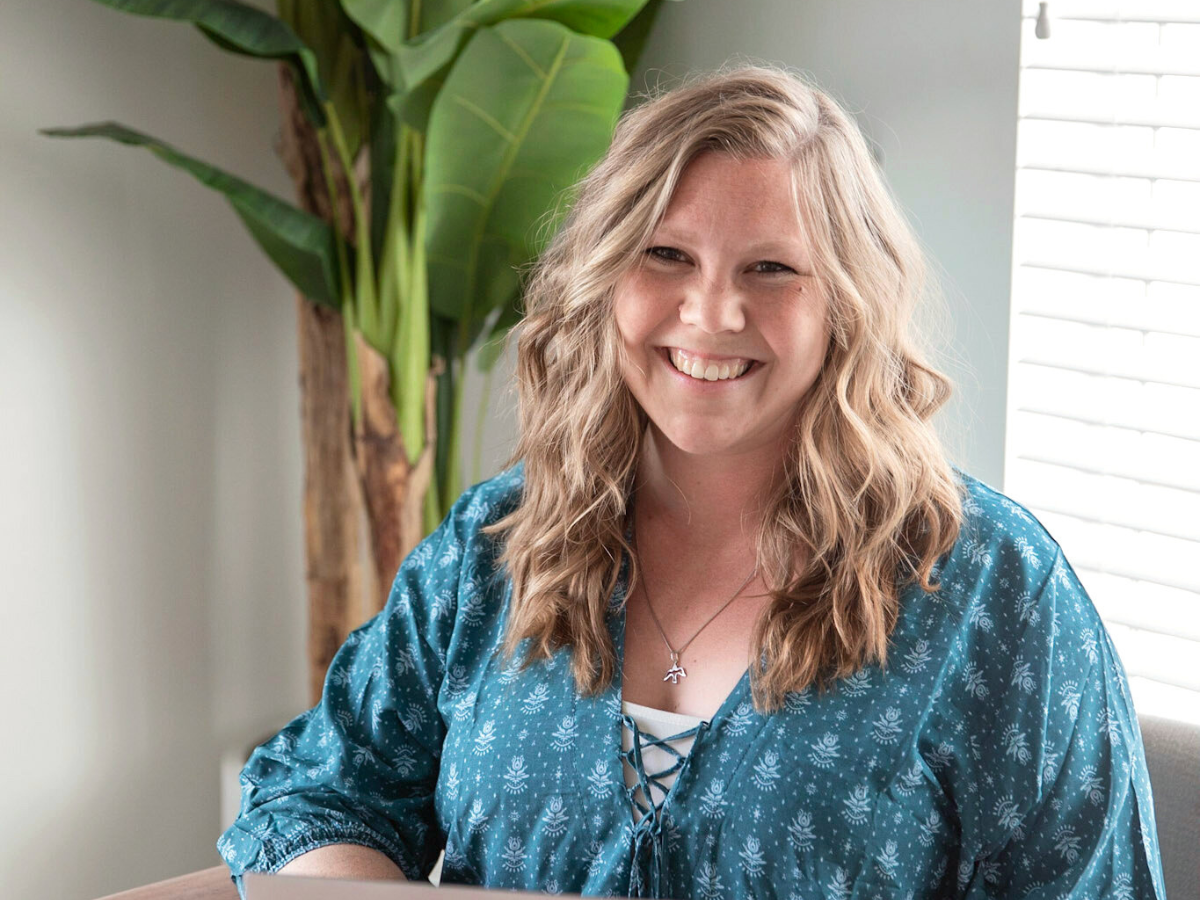
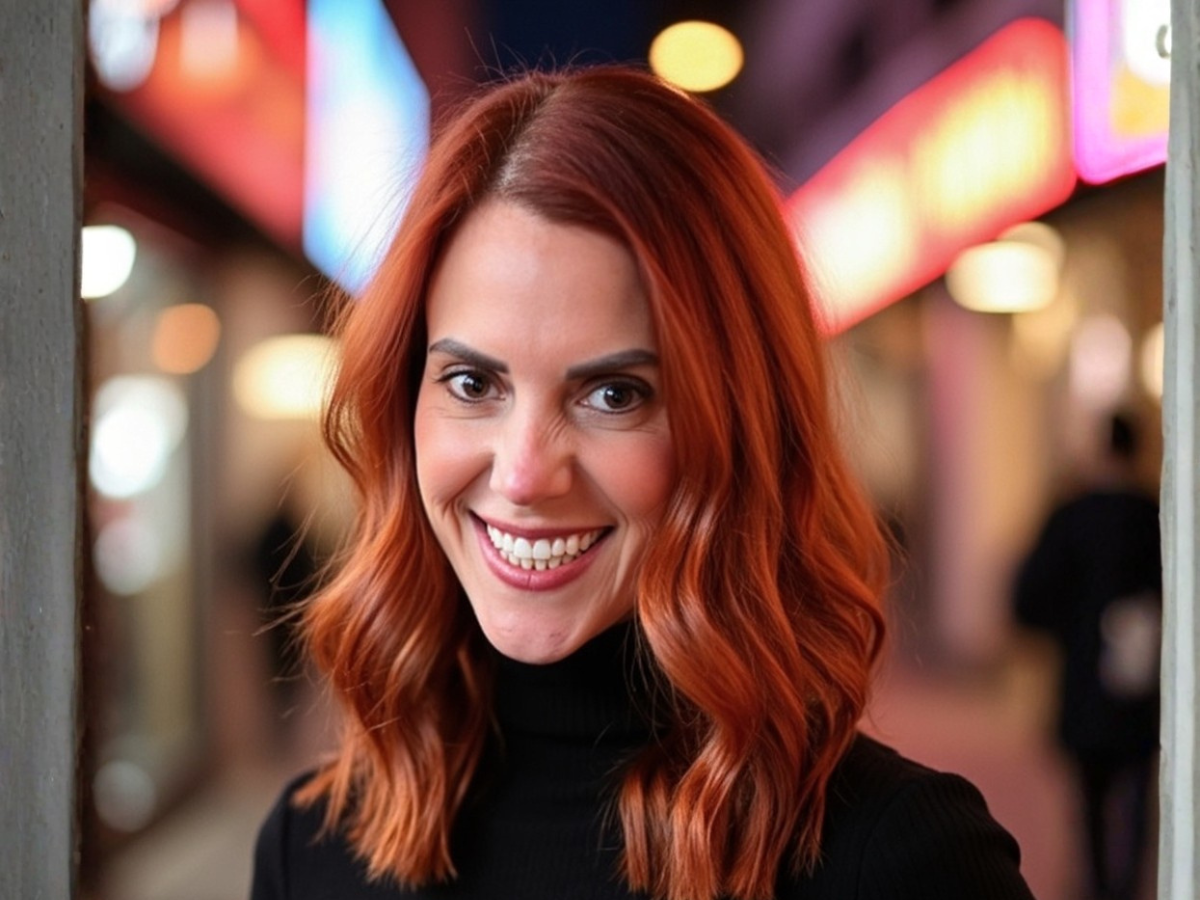



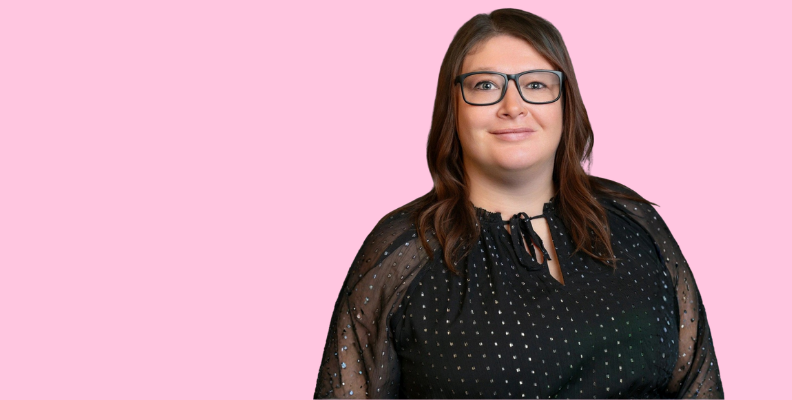
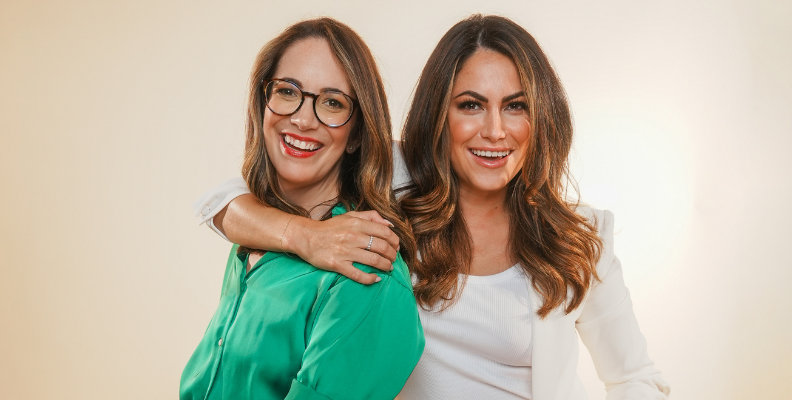
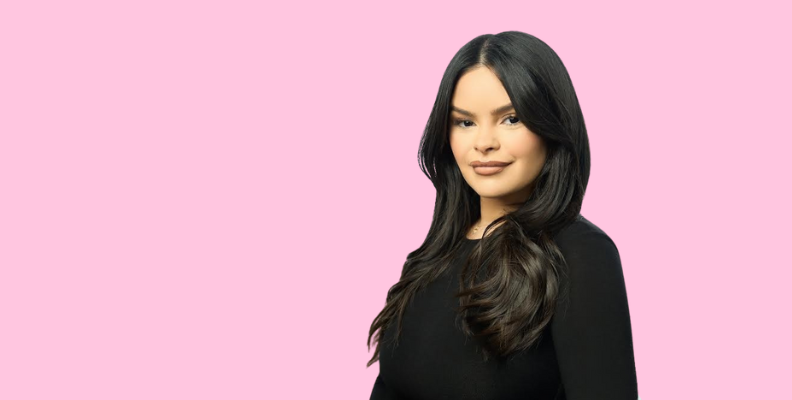
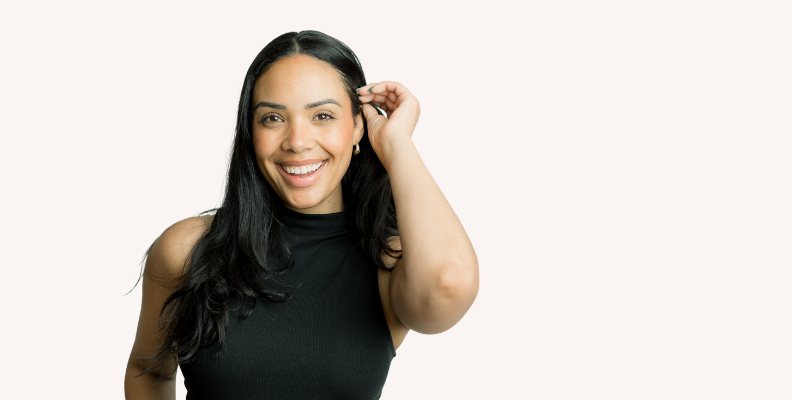


.png)
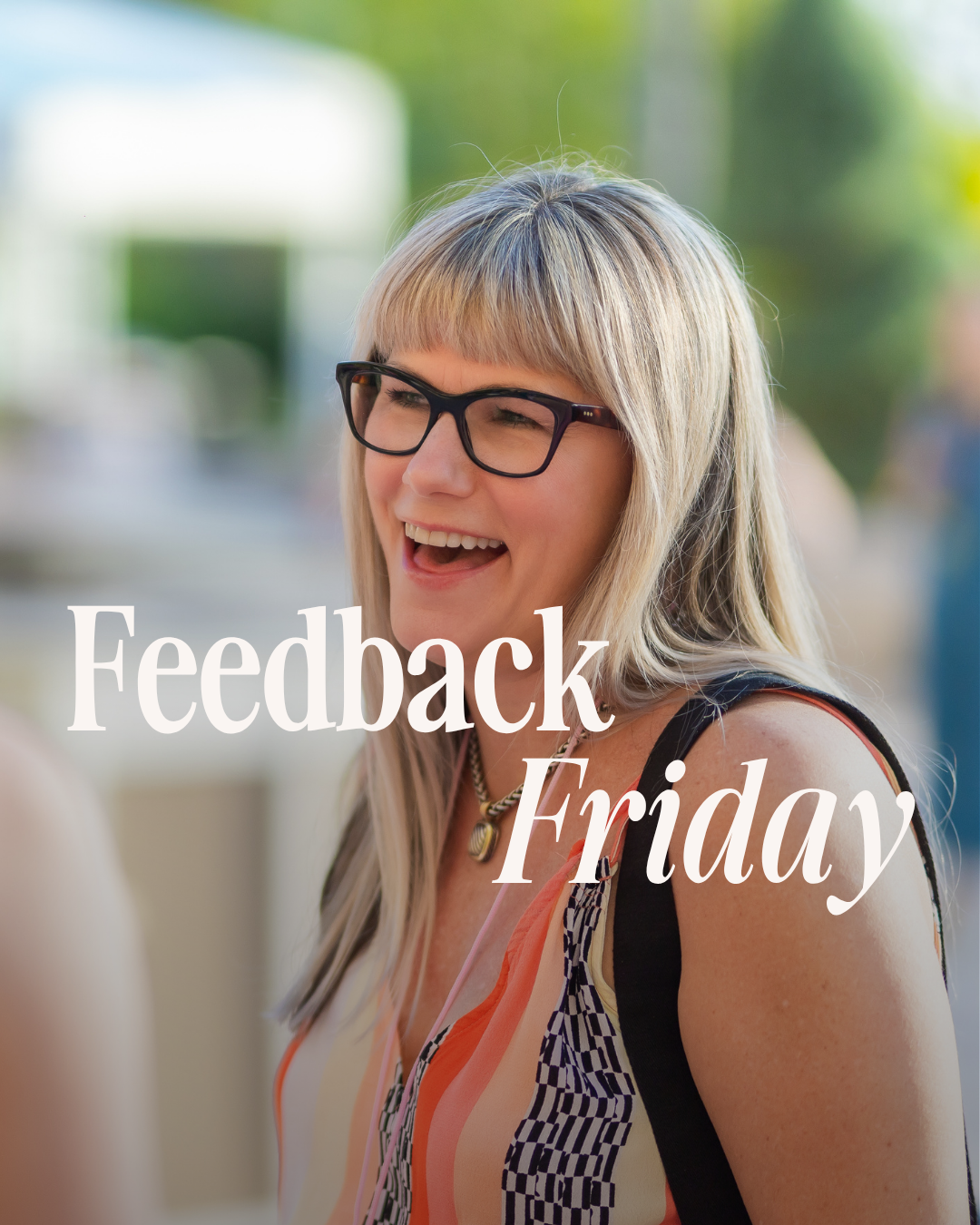
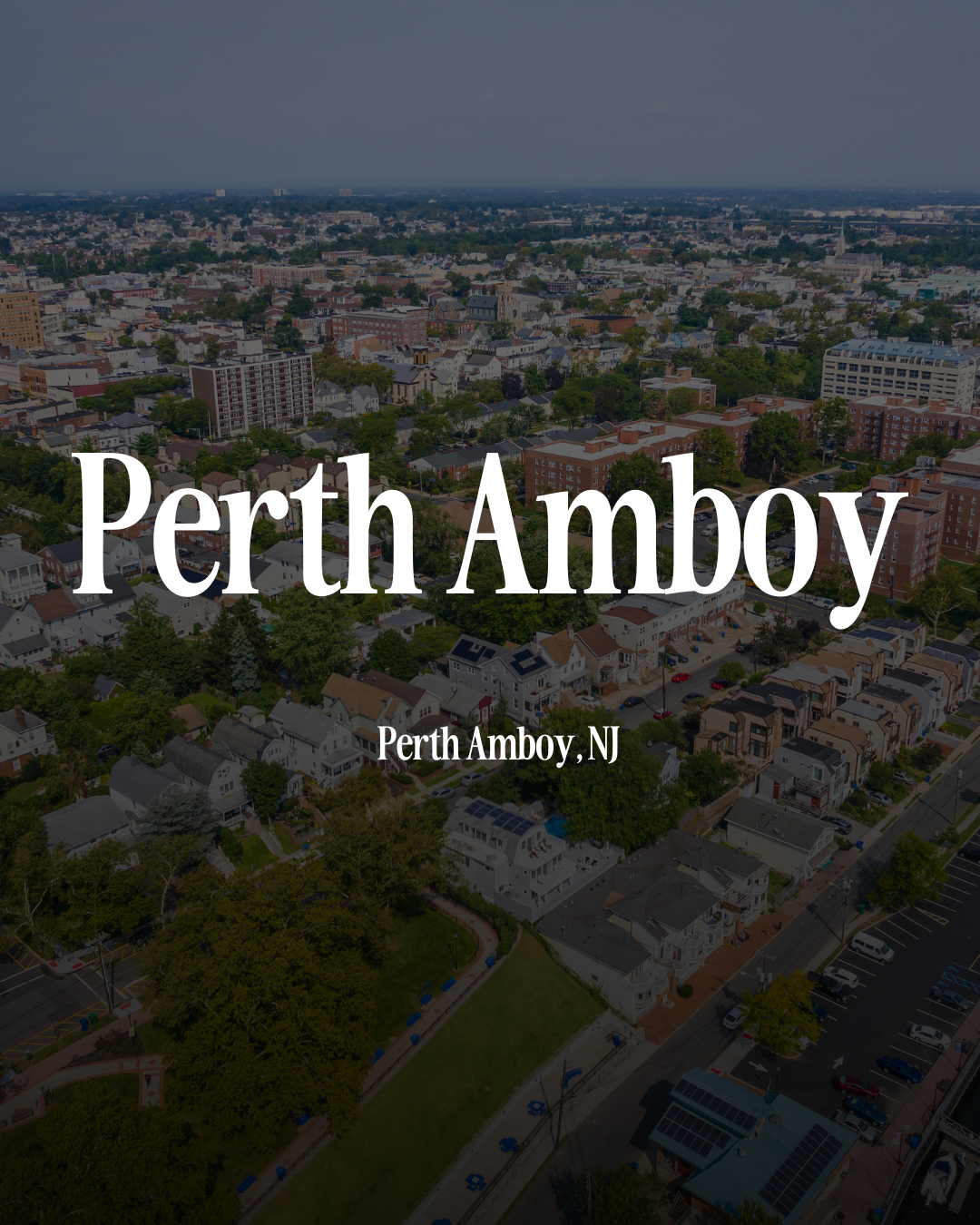
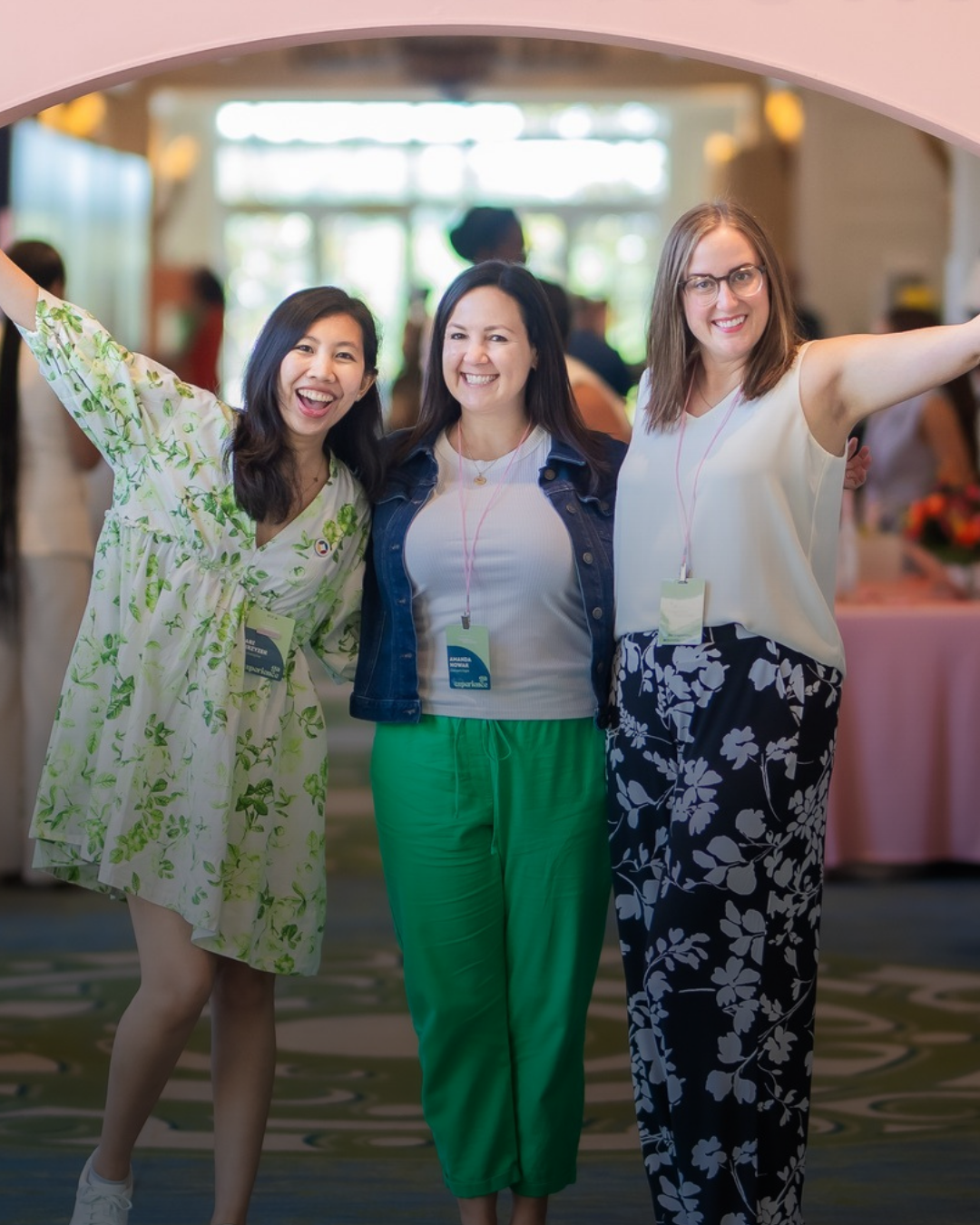



.avif)

